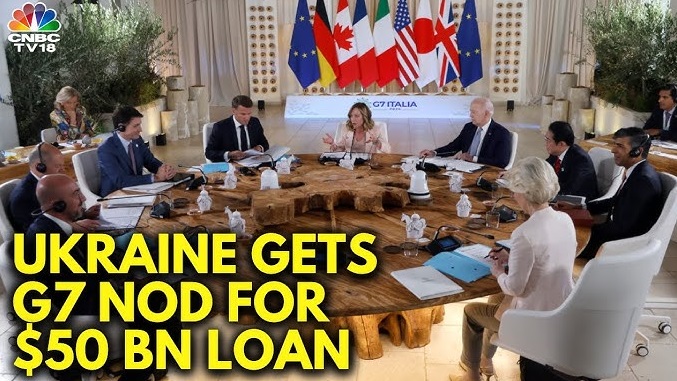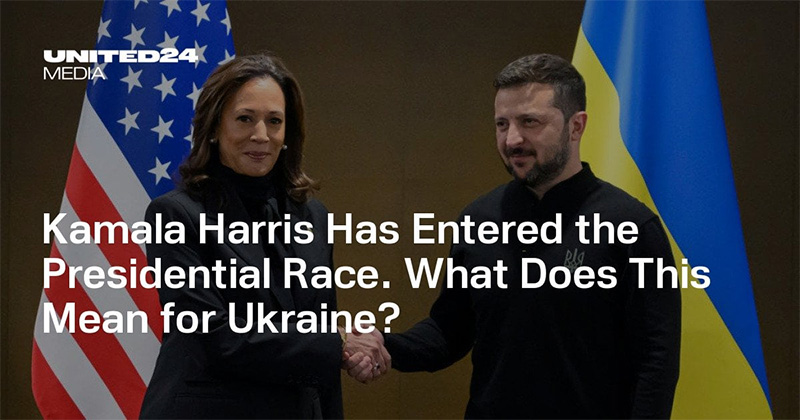
The amount of financial resources Kyiv can count on to ensure the country’s survival hinges on a strangely contorted discussion between western allies. It concerns how to financially engineer a $50bn advance on money relating to Russian central bank reserves that western jurisdictions have blocked Moscow’s access to. In June, G7 leaders committed to “extraordinary revenue acceleration loans”, writes ‘The Financial Times’.
But even that remains far from a done deal, with technical difficulties reflecting deeper political challenges.
The idea is for a syndicate of Ukraine’s friends to take up a loan, then channel it through a trustee institution such as the World Bank. Kyiv’s resulting debt-service costs would be covered by the extraordinary profits that Euroclear, the Belgian securities custodian, is making on nearly €200bn of cash balances it is prohibited from paying out to Russia’s central bank.
These war profits (which is what they are, through no fault of Euroclear’s) ought morally to go to Ukraine anyway, which is why the EU recently decided to channel much of them to military aid. The new G7 plan is essentially to repurpose and “accelerate” this profit stream into a big upfront cheque.
That is enough to show the G7 is granting no additional money beyond what Ukraine was already rightly set to receive, let alone any belonging to Moscow. The scheme is already being used to argue that less needs to be spent by western governments themselves — witness Berlin’s shameful plan to cut aid for Ukraine.
The flip side is that Kyiv’s indebtedness will increase, even if securitisation supposedly means it never has to pay anything.
In a nutshell, the problem is that western leaders have tried to get something for nothing: new funding for Kyiv, but with no new taxpayer commitments, no financial risk and no seizure of the assets even of a criminal state. These political contradictions cannot be solved, at most they can be camouflaged, by technocratic solutions.
Only a political choice to set a new legal precedent would cut through this Gordian knot: a transparent decision to jointly confiscate Russia’s assets outright for Ukraine’s benefit. It may still come to that as political contradictions become unsustainable. But the longer it takes, the more is lost in waiting. In the meantime, making good on the Puglia promise would be welcome — but no one should imagine that will close the issue for more than a few months.

The rising popularity of U.S. presidential candidate Kamala Harris has thrown an unexpected diplomatic wrench into efforts by Europe and Washington to give Ukraine a $50 billion loan, notes POLITICO.
Before President Joe Biden pulled out of the race for the White House, the prospect of a Donald Trump presidency had spurred diplomats on both sides of the Atlantic to set aside differences in order to finalize the loan by the end of the year.
But the prospect of a Harris victory has removed some of the urgency from that drive. While officials feared Trump would unravel the loan agreement and slash aid to the war-torn country, they believe the Democratic candidate is unlikely to do any such thing, and that she actually has a chance of winning the presidency.
As a result, a split between the EU and the U.S. over the finer points of the loan ― which would be repaid using the profits from investing frozen Russian assets ― is becoming entrenched, two EU officials with knowledge of the proceedings told POLITICO.
“The whole idea was to Trump-proof [aid to Ukraine] but it's a different situation now with Harris,” said one of the officials who, like others, was granted anonymity to speak freely.
The Ukraine loan was agreed at the level of the G7 group of governments in June, but the EU and the U.S. continue to disagree over the details.
With the vast majority of the assets frozen since Russian President Vladmir Putin's February 2022 invasion of Ukraine being held in Europe, Washington is demanding the EU guarantee they remain immobilized until Moscow pays post-war reparations to Ukraine. That way, the U.S. won't end up on the hook for repaying the loan if the assets are unfrozen.
But that's a difficult demand for the EU to meet because it would require unanimity, and several European countries are opposed.
G7 leaders committed in June to finalizing an agreement by late October in a bid to lock in aid to Ukraine before the U.S. election.
The EU could theoretically issue the loan to Ukraine without waiting for its G7 allies, but several member countries believe that option might undermine Western unity; the European Central Bank, for its part, fears it carries excessive financial risks.
read more in our Telegram-channel https://t.me/The_International_Affairs

 10:45 06.09.2024 •
10:45 06.09.2024 •






















